Taming errors in Majorana qubits
—by Abhijeet Alase
EQUS researchers have proposed a new scheme for tackling errors that arise from quasiparticle poisoning processes.
Building scalable quantum computers requires qubits that allow initialisation, measurement and gate operations with very high accuracy. One proposal to realise such qubits is based on hybrid semiconductor–superconductor devices. Such devices host zero-energy excitations called Majorana modes. Qubits encoded in Majorana modes—Majorana qubits—are robust against most sources of noise. However, the weakness of Majorana qubits is an error process known as quasiparticle poisoning, in which high-energy excitations of the system interact with the Majorana modes to destroy the stored information.
In our recent work (https://arxiv.org/abs/2307.08896), myself and colleagues Kevin Stubbs, Barry Sanders and David Feder proposed a new scheme for tackling errors that arise from the quasiparticle poisoning processes. This scheme relies on local measurements to detect high-energy excitations. These detections allow corrupted qubits to be indentifed, which can then be erased. This process accomplishes the conversion of potentially harmful quasiparticle poisoning errors into more manageable erasure errors.
Our work opens up an approach to tackle the biggest weakness of Majorana qubits (quasiparticle poisoning errors), thus potentially making Majorana qubits suitable for building large-scale quantum computers. However, the analysis in our work used some simple models of quantum measurement. Future work to model the measurements that can be implemented with state-of-the-art experimental techniques will be vital to analyse how well our scheme performs under such realistic models of measurements. Optimally integrating such measurements in the existing error-correction schemes is another important challenge on the theoretical front.
Dr Abhijeet Alase is a Research Affiliate at The University of Sydney in the Quantum Theory Group, under the supervision of Chief Investigators Prof. Stephen Bartlett and Prof. Andrew Doherty. His postdoctoral research focuses on topological systems and their applications to quantum technologies, and fits within the EQUS’ 1kQubit Flagship and Designer Quantum Materials research themes. He is also interested in developing quantum algorithms for practical applications.
Major funding support

The Australian Research Council Centre of Excellence for Engineered Quantum Systems (EQUS) acknowledges the Traditional Owners of Country throughout Australia and their continuing connection to lands, waters and communities. We pay our respects to Aboriginal and Torres Strait Islander cultures and to Elders past and present.


